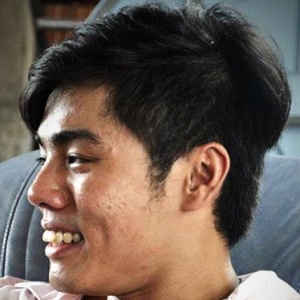MALAYSIA, LONG WAY HOME | ASIA-EUROPE SHORT STORY CONTEST
Leroy Luar’s short story received 12,800 votes. This image was captured 1 September 2013 at 11:59 pm (Singapore SGT).
The Evidence of Us
A short story by Leroy Luar
I had already given the door a few tentative knocks, but then I knocked again just to be sure. I had looked for a button to press or a bell to pull, but there was no such thing. There is a little window – a panel of pebbled glass – and through it I see him moving about inside the apartment. It’s just like him to putter about; he’s probably fussing about some detail or other – I’ll have to fix the hinges on that door soon, maybe I should turn the TV off, where on earth is it? I just had it a moment ago.
We were introduced ten, fifteen years ago by mutual friends. They had told me that I would be meeting a man some years older but the perfect gentleman; very intelligent, a celebrated professor who lectured in well-respected universities all around the world. I liked the sound of that. I didn’t know what exactly they had told him about me.
Our first meeting was predictably awkward. Mostly silent, we pecked bird-like at the titbits of conversation dropped here and there. We were both probably thinking the same thing: let’s see how this goes. At the end of dinner, he insisted he take the bill. I decided not to make a show of protesting too much; we had been dining at a restaurant I could ill afford. I had had practically nothing to eat, insisting that I was a small eater by nature. Before we parted, he leaned forward and extended his hand. I misjudged his gesture and went in for a hug, surprised that I wasn’t hugged in return.
He called some days later, asking me out again for dinner. Although I had already made plans for that night, I said yes. And when I called my friends to cancel, they assured me that they understood. Even so, they jeered at me – Sam’s gonna get some! – but I didn’t mind. I was excited to see him again; excited even more so that he wanted to see me too.
That night we made love, and after that I asked him how he got my number. And he sheepishly admitted to persuading my friends to share my personal details with him. I made a joke then, somewhere along the line that older people shouldn’t be allowed younger friends, but then I stopped short of the punch line; wary that I might be crossing some boundary I was as yet unable to see.
Before that night, I had only ever fallen asleep in bed by myself. It was terrible; he fell asleep with me wrapped up in his arms, my own pinned underneath my body and my neck crooked at an awkward angle. In the years to come, I learnt the trick of wriggling out of his embrace after he had fallen asleep so that I could lie flat on my back the way I preferred.
Did I ever even for a moment think that our arrangement could become permanent some day? I couldn’t say. We talked about the future sometimes – not often enough in my opinion – always never coming to any satisfactory conclusion. I loved him. With all of what little I have, I loved him. And I knew that in his own intelligent, quiet way, he loved me too.
But then the day came, somewhere around the seventh year of our first meeting. Over dinner, he told me that he would be moving home to London. And it would be best for me if I stayed behind. I told him it wasn’t entirely his decision to make. But we both knew that ours had been a relationship built on borrowed time. Every book he had ever given to me, every note that he had ever written, every mundane shred of the evidence of us, I stoked into a blazing bonfire. The neighbour’s children came out to watch, instinctively drawn to the flames. I wept, long after the ashes had cooled.
Levelled civilisations rise anew. Razed forests regenerate verdant. Humans are all too animal in their ability to move on from loss. I hung out with my friends. I worked at my craft. Eventually, I met someone new. And then my agent called me one day. There’s a gallery in London asking to exhibit your work, she said. We could make a little bit of money there. Sure.
I had kept his address in my pocket, scribbled from a source I found on the Internet. After my exhibition, on the last day of my trip, I hunted it down.
I knock on his door again, a little more impatiently now and at long last he opened the door. “Sam,” he said.

No comments:
Post a Comment